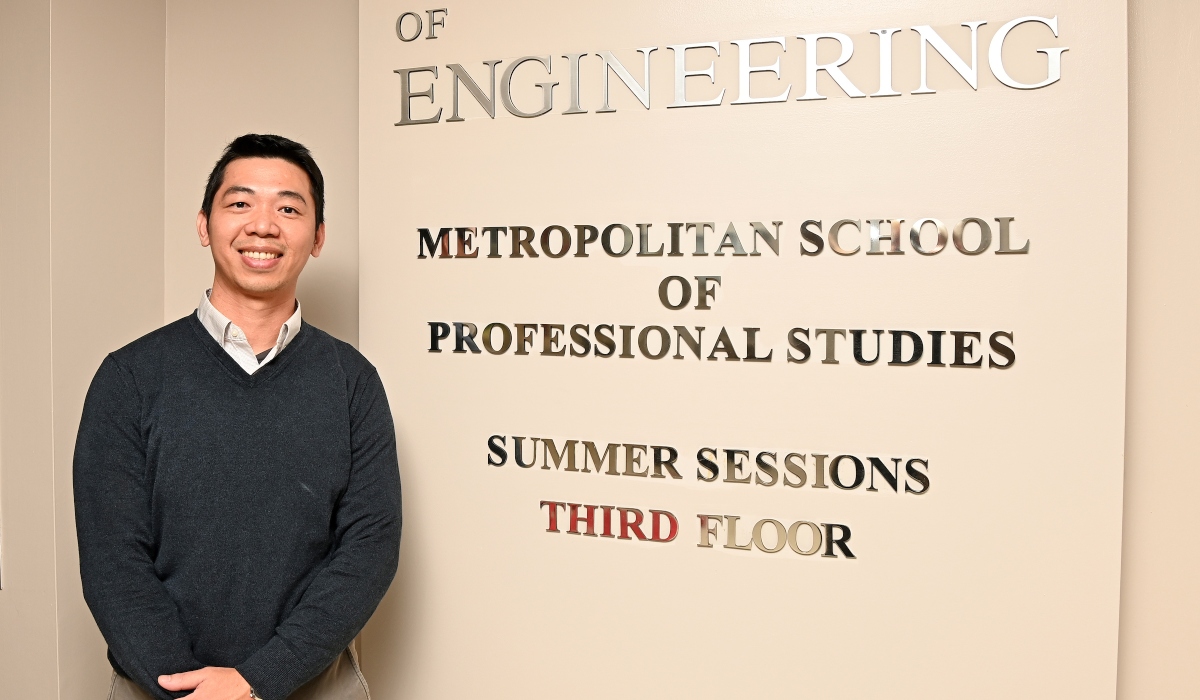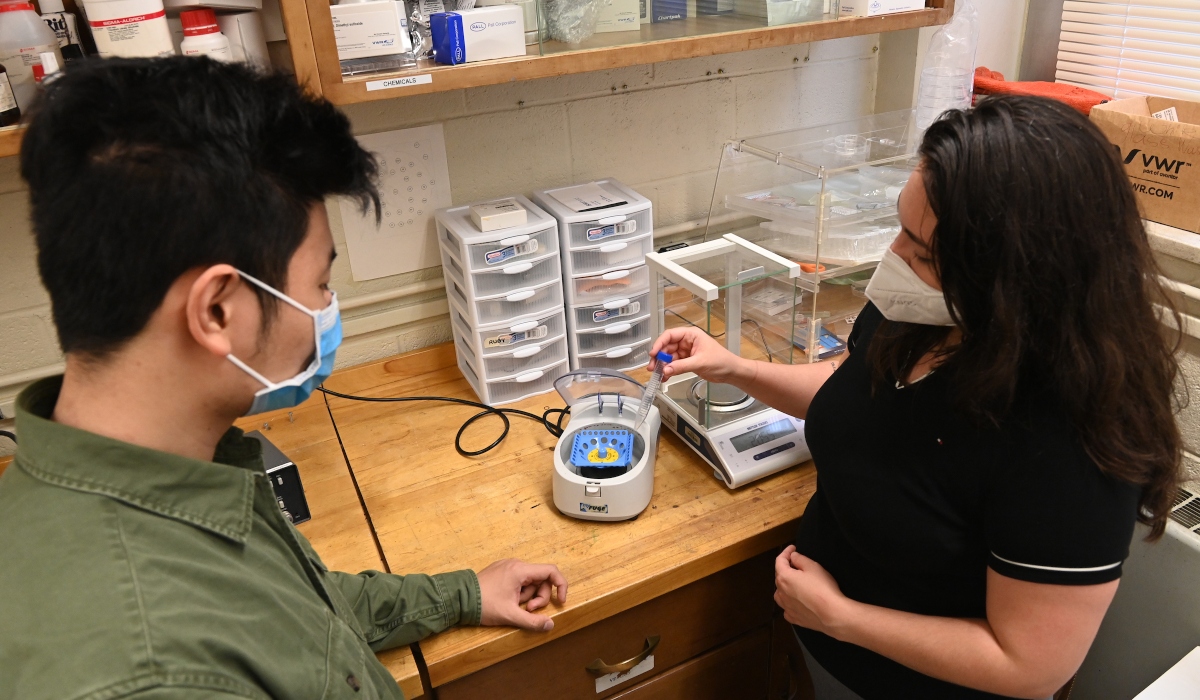

Hieu Bui, an assistant professor of electrical engineering and computer science, was recently awarded a three-year grant from the U.S. Naval Research Laboratory and the Defense Threat Reduction Agency totalling $192,000. Bui and his research group, Bio-inspired Molecular Computing Laboratory located in the School of Engineering, have been researching how to program nucleic acid systems with DNA nanotechnology for use in healthcare diagnostics.
Bui has been working in the field with DNA nanotechnology for 10 years on technology that enables him to control and manipulate molecules like proteins and enzymes. By learning to design and program DNA and other matters at the atomic level, Bui has built a prototype of a system that uses DNA molecules to detect specific biomolecules and antibodies. This could be used for early detection in a number of diseases and viruses, including COVID-19.
“This technology in general can detect any kind of antibody as long as we can tag the antibody with a DNA signature,” Bui said. “We’re interested in doing this because certain diseases are hard to detect at an early stage because they only have very tiny fractions of antibodies present. To be able to identify them with high confidence, we could have better intervention methods and treatments.”
Bui envisions his technology as a “first line of detection” for any disease. Because it uses affordable technology and doesn’t require expensive heating or cooling equipment, it could be very valuable for detecting diseases in remote areas, Bui believes.
The technology is also innovative because it approaches the problem of disease detection from a computer-science-and-engineering standpoint, Bui said.
“By understanding how DNA operates and collaborating with experts in other fields, we can derive new ideas and solutions to challenge the conventional methods we have been using as a society,” he said. “When we discover new ideas or build new systems, that’s what motivates me to keep working in this area. There’s a lot of untapped potential because it’s incredible to imagine that we can design and program synthetic DNA systems at the molecular level. I couldn’t imagine we could do that when we first started and now we can do it routinely.”

Bui envisions that within the next five to 10 years, this kind of DNA technology will be used in many ways in the healthcare industry or even as a digital storage device. The tech industry has already invested in DNA nanotechnology research. He noted that Microsoft, Illumina, Twist Bioscience, and Western Digital have recently created a coalition to build the whole ecosystem for DNA data storage.
“My hope for this technology is that it will change the way we think of DNA outside of its biological sense,” he said. “My hope is that it's not only able to help engineer health and provide longevity, but that it can also help in creating new unconventional computing technology. There is a lot of potential that we as a society are going to see [and] new applications emerging from this field.”